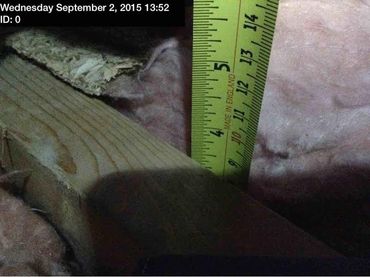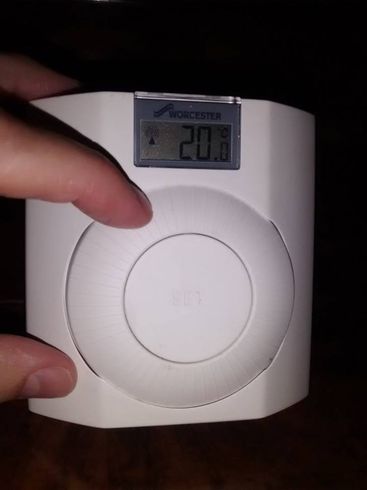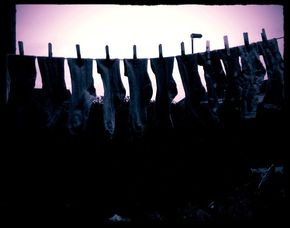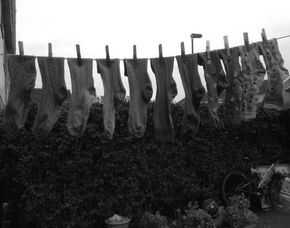HELP WITH FUEL COSTS
Winter Fuel Payment:
You could get between £100 and £300 tax-free to help pay your heating bills if you were born on or before 5 January 1953. This is known as a ‘Winter Fuel Payment’. Most payments are made automatically between November and December if you get the State Pension or another social security benefit (not Housing Benefit, Council Tax Reduction or Child Benefit). Telephone helpline 0345 9 15 15 15
Warm Home Discount Scheme:
If you are on a low income, you may qualify for the Warm Home Discount Scheme. This gives a rebate to pensioners on low incomes and some other customers on low incomes. Telephone for advice 0345 603 94 39
Cold Weather Payment:
If you are getting certain benefits you may be entitled to a Cold Weather Payment when your local temperature is either recorded as, or forecast to be, an average of zero degrees celsius or below over 7 consecutive days.
Contact www.gov.uk for more information.

TOP TIPS - 'get wise'
- Turning your thermostat down by 1°C can save you as much as £60* per year. Also, keeping your heating on constantly on a low heat could potentially save you more money than switching it on and off for big blasts of heat.
- Turn appliances off and don't leave on standby. A typical household could save between £50* and £90* a year just by turning off appliances left on standby
- Turn the pressure down on the power shower.
- Close curtains at dusk.
- Turn lights off when leaving a room.
- Air-dry your laundry outside rather than tumble drying it.
Be careful in the kitchen - You can save over £55* a year just by being careful how you use your kitchen appliances. The following tips can help you reach this saving:
- Wash your clothes at 30-40 °C, a full load uses less energy.
- Use a bowl to wash up rather than leaving the hot tap running.
- Just boil the amount of water in your kettle that you need.
- Use the smallest pan and keep lids on pans.


ENERGY SAVING MEASURES
Loft insulation
It is recommended you have at least 270mm (ten inches) of loft insulation. You could save up to £180 a year if your loft is uninsulated by installing 270mm of insulation. Even if you have some insulation, by topping up from 100mm to 270mm could save around £25 a year.
Cavity wall insulation
(CWI) If a home was built after 1930, the chances are that its external walls are made of two layers of brick with a gap or cavity between them. Cavity wall insulation can save up to £140 a year.
Draught proofing
of windows, doors and blocking cracks in floors and skirting could save £55 a year in a draughty home, these works are relatively inexpensive and can pay for themselves in about two years.
Hot Water Tank insulation
If you already have a hot water tank jacket fitted, check the thickness, it should be at least 75mm thick. Fitting a British Standard jacket will cost around £15 DIY, cut heat loss by over 75% and save you around £45 a year.
Solid wall insulation
If your home was built before 1930, its external walls are probably solid rather than cavity walls. The cost of installing internal wall insulation is much more than CWI but could save around £460 a year.
Efficient lighting
If the average household replaced all their remaining old-fashioned bulbs with low energy light bulbs and all their halogens with LEDs it would cost around £110 and save around £60 a year.
Heating controls
Whatever the age of your boiler, the right controls will let you set the times, temperature and the rooms where you want your heating. Here are some things you could do in a typical three-bedroom semi-detached home, heated by gas:
- Install a room thermostat if you didn't have one before and save around £70 a year.
- Thermostatic radiator valves (TRVs), allow only rooms to be heated independently and therefore the boiler works less hard and uses less energy.
Replace your boiler.
Boilers account for around 55% of what you spend in a year on energy bills. Replacing an old gas boiler with an A-rated high-efficiency condensing boiler and improving your heating controls will cost around £2,000 and could save you as much as £310 a year.
*savings based on standard amounts and standard heating pattern for a 3 bedroomed semi-detached property.
RENEWABLES
Renewable energy is generated from natural resources such as the sun, wind, and water, using technology which ensures that the energy stores are naturally replenished.
Renewable technologies available for generating your own electricity:
- Solar panels
- Wind turbines
- Hydro
- Micro-CHP
Renewable technologies you could use to generate your own heat:
- Biomass
- Air source heat pumps
- Ground source heat pumps
- Solar water heating
- Thermal stores
Some technologies have specific requirements for installation for example, solar PV and solar thermal depends on the way your roof faces with south and south/west facing being the best, and heat pumps require space outside, whilst hydro requires a water source.
Feed In Tariffs
Feed-in Tariffs (FITs) were introduced on 1 April 2010 and are paid to you by your energy supplier, the big 6 energy suppliers will pay a tariff at p/kWh for 20 years. New tariffs came into force in February 2016.
FITs replaced government grants as the main financial incentive to encourage uptake of renewable electricity-generating technologies. Most domestic technologies qualify for the scheme.
An EPC rating of band D or above is required to get payments under the Government’s feed-in tariff (FIT) for solar PV receive FITs at the standard rate. A lower EPC rating will mean a lower rate FIT is paid.
Renewable Heat Incentive (RHI)
The domestic RHI can give you regular payments over seven years if you install an eligible renewable heating system.
It is recommended to get quotes from at least three Microgeneration Certification Scheme (MCS) accredited installers. To find MCS installers you can visit their website.
For advice contact the Energy Saving Advice Service on 0300 123 1234
(national rate call) or email energy-advice@est.org.uk





